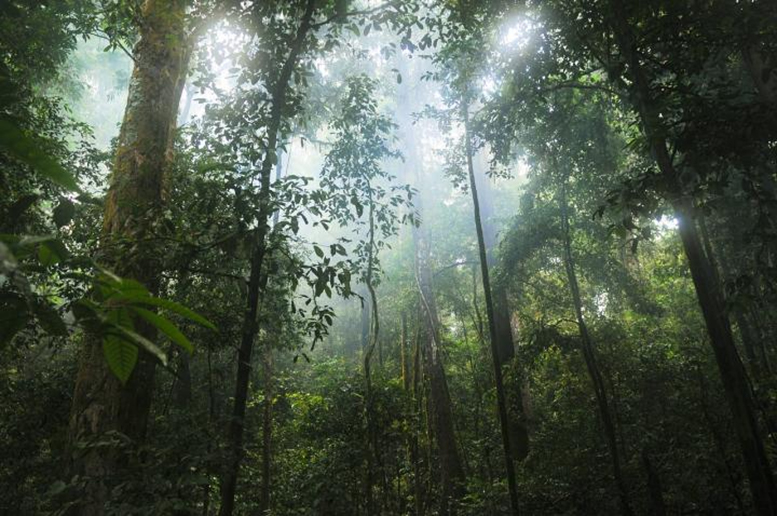
The impact of losing intact tropical forests is more devastating on the climate than previously thought, according to University of Queensland-led research.
The international study has revealed between 2000 and 2013 the clearance of intact tropical forests resulted in a much higher level of carbon being emitted to the atmosphere than first believed – resulting in a 626 percent increase in the calculated impact on climate.
UQ conservation scientist Dr. Sean Maxwell said this difference equated to two years of global land-use change emissions, and was previously unaccounted for due to a lack of full carbon accounting.
“Usually only ‘pulse’ emissions are considered – these are emissions released the instant intact forest is destroyed,” Dr. Maxwell said. “Our analysis considers all impacts such as the effects of selective logging, forgone carbon sequestration, expanding effects on the edges of forests, and species extinction.
“We were shocked to see that when considering all of the available factors, the net carbon impact was more than six times worse for the climate.”
The researchers analyzed maps of intact forest clearing across the tropics between 2000 and 2013, then calculated the areas’ pulse emissions and simulated the impact of previously unrecorded factors.
“We could see where selective logging was occurring based on where new roads have been built, the extent of new forest edges based on where deforestation had recently occurred, and the loss of large seed-dispersing animals due to them becoming more susceptible to hunting,” Dr. Maxwell said.
“The team then estimated the amount of carbon that these processes will release into the atmosphere between 2013 and 2050, labeling it ‘committed emissions’. “By comparing ‘pulse’ and ‘committed emissions’ with what these forests could have removed from the atmosphere if they’d remained intact until 2050, we determined the real impacts of deforestation.”
UQ and Wildlife Conservation Society’s Professor James Watson said the study’s approach better captured the true carbon impact of intact forest loss.
“Losing Earth’s remaining wilderness is devastating by itself, but climate impacts 626 percent greater than expected is terrifying,” Professor Watson said. “Humanity needs to better fund the conservation of intact forests, especially now we’ve shown their larger-than-realized role in stabilizing the climate. Our study will hopefully mobilize more funding from the climate finance sector, improving and expanding efforts to retain intact forests across the tropics.”
Dr. Maxwell said that Indigenous peoples and local communities will increasingly play a central role in efforts to improve and expand forest conservation.
“Intact forests are often critical to the material and spiritual aspects of traditional cultures,” he said. “Strengthening the land tenure of Indigenous and traditional peoples is a powerful way to protect intact forests.”
The research has been published in Science Advances.
Reference: “Degradation and forgone removals increase the carbon impact of intact forest loss by 626%” by Sean L. Maxwell, Tom Evans, James E. M. Watson, Alexandra Morel, Hedley Grantham, Adam Duncan, Nancy Harris, Peter Potapov, Rebecca K. Runting, Oscar Venter, Stephanie Wang and Yadvinder Malhi, 30 October 2019, Science Advances.
DOI: 10.1126/sciadv.aax2546
Never miss a breakthrough: Join the SciTechDaily newsletter.
1 Comment
love your site